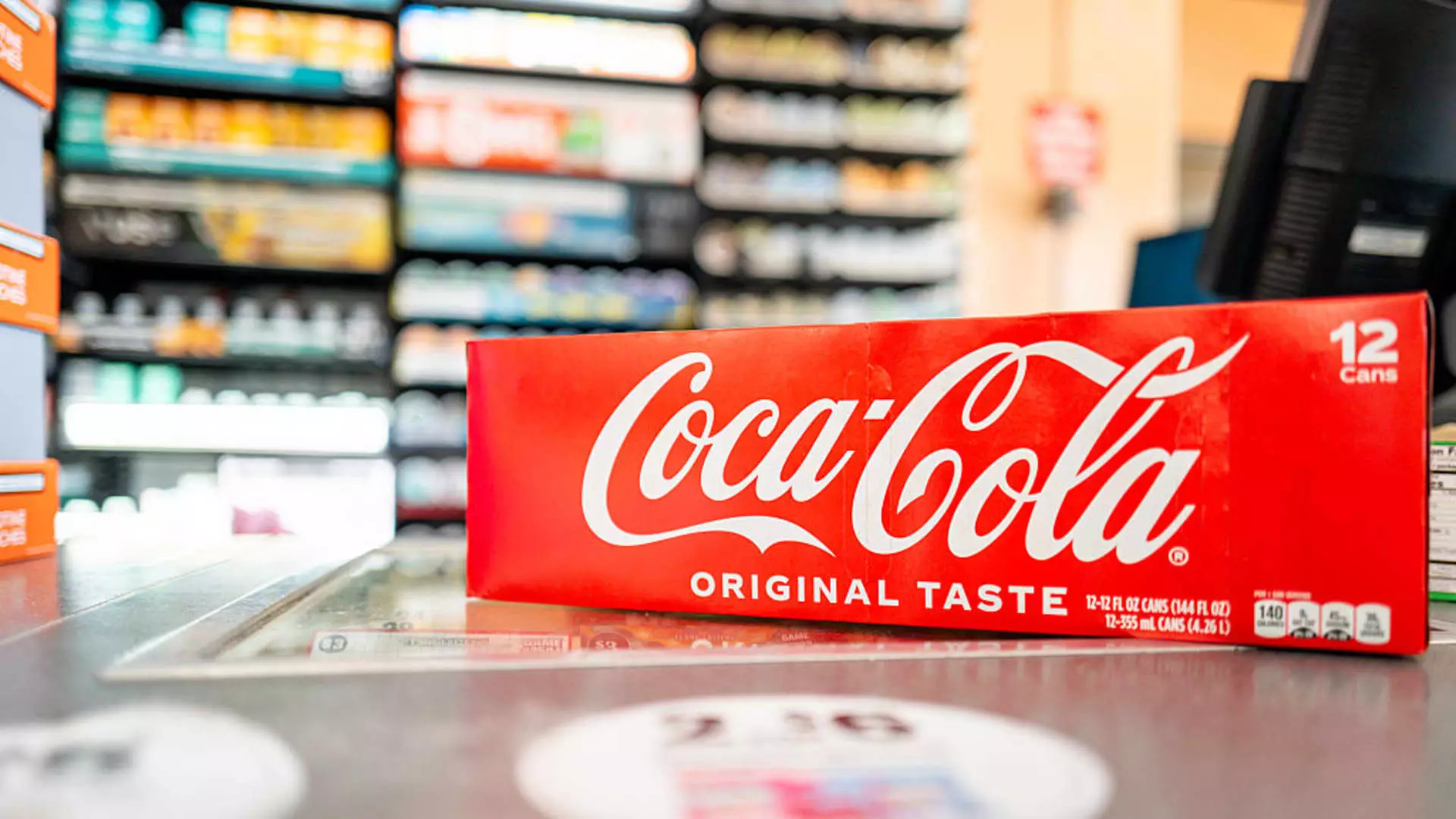Coca-Cola’s latest earnings report paints a picture of superficial resilience amid underlying weaknesses that could imperil its future. While the company’s ability to surpass expectations on paper—thanks to a slight uptick in revenue and a robust bottom line—may seem encouraging at first glance, a deeper analysis reveals cracks in the foundation of its presumed stability. The company’s seeming growth is driven more by strategic pricing and market shifts than genuine demand, exposing vulnerabilities that could magnify in an increasingly volatile global economy.
Despite the headline numbers, Coca-Cola’s core challenge is not just weak volume performance in multiple regions but a fundamental misalignment between its product portfolio and shifting consumer preferences. Its reliance on traditional sparkling soft drinks, which experienced a 1% volume decline globally, indicates that healthier, more diverse beverage choices are slowly eroding its market share. The persistent fall in volumes in Latin America and Asia-Pacific—by 2% and 3% respectively—further underscores the fragile demand landscape outside its core European stronghold. This divergence suggests that Coke is struggling to adapt quickly enough to competitive pressures and evolving tastes, risking a future where premium or health-conscious brands outrun its traditional offerings entirely.
Overreliance on Pricing and Market Manipulation
While Coca-Cola claims to have navigated economic uncertainties with strategic price adjustments, this approach is a double-edged sword. The company’s organic revenue increased by a respectable 5%, but this figure is friendlier to its financial statements than it is a reflection of consumer demand. Price hikes can temporarily mask a fall in volume, but they often lead to long-term erosion of loyalty, especially when consumers turn to alternatives perceived as healthier or more affordable. The recent decline in demand from lower-income groups and the controversy surrounding social media rumors about ICE reporting—though denied—highlight how fragile the consumer trust loyalty that Coke relies on has become.
The introduction of a cane sugar-based formula for its flagship cola in the U.S. this fall suggests an acknowledgment that traditional formulations are losing ground. By offering a “premium” product, Coke is attempting to reposition itself as a specialty rather than a mass-market staple. However, this move also indicates a recognition that core products are losing relevance, which could further alienate price-sensitive consumers. The risk is that Coke’s “premiumization” strategy might only serve to widen existing gaps between itself and more innovative competitors who prioritize health and sustainability.
Geopolitical and Social Headwinds as Business Headaches
Coca-Cola’s regional performance reveals deeply rooted geopolitical and social headwinds that threaten its global footprint. The sharp decline in Latin America and Asia-Pacific volumes cannot be ignored, especially given the broader context of economic instability and social unrest in these regions. Consumer confidence is fragile, and their shifting allegiances towards local or health-conscious alternatives threaten Coca-Cola’s dominance.
Moreover, the social media controversy involving the company’s alleged reporting of undocumented workers indicates how external social and political issues can directly impact brand trust and consumer behavior. Although Coke claims to have moved past the incident, the damage to its reputation lingers, and such distractions divert management’s focus from strategic innovation. The partial recovery in Europe, driven by targeted marketing and local strategies, demonstrates that Coke is capable of navigating these challenges—if and only if it remains alert to changing societal currents and regional differences.
This fragile balancing act threatens to break if Coca-Cola underestimates the pace of change. The company’s overconfidence in its ability to influence volume growth through marketing and pricing may prove shortsighted, especially if consumer trends toward health, sustainability, and authenticity accelerate. Without fundamental innovation and a realignment of its product portfolio, Coca-Cola risks becoming a relic rather than the beverage giant it perceives itself to be.

